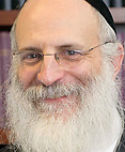Large cell non-Hodgkin lymphoma of childhood: Analysis of 78 consecutive patients enrolled in 2 consecutive protocols at the Memorial Sloan-Kettering Cancer Center Journal Article
| Authors: | Mora, J.; Filippa, D. A.; Thaler, H. T.; Polyak, T.; Cranor, M. L.; Wollner, N. |
| Article Title: | Large cell non-Hodgkin lymphoma of childhood: Analysis of 78 consecutive patients enrolled in 2 consecutive protocols at the Memorial Sloan-Kettering Cancer Center |
| Abstract: | BACKGROUND. The authors report a study of pediatric patients with advanced diffuse large cell lymphoma (DLCL) who were treated with 2 consecutive regimens, LSA2-L2 and LSA4, over a 25-year-period at the Memorial Sloan-Kettering Cancer Center. They also describe a comparative analysis of two subgroups retrospectively identified as having CD30 positive (+) anaplastic large cell lymphoma (ALCL) and CD30 negative (-) DLCL. To the authors' knowledge, this study represents the longest follow-up on the largest series of uniformly treated pediatric DLCL patients reported to date. METHODS. A total of 78 consecutive patients were treated for Stage III/IV DLCL. Immunophenotypic data were obtained retrospectively for 52 patients using a panel of monoclonal antibodies against CD30, CD15, CD45, CD45Ro, CD43, epithelial membrane antigen, CD5, BCL-2, cyclin-D, and p53. RESULTS. A disease free survival rate of 72% in patients with advanced stage DLCL using the LSA2-L2 and LSA4 regimens. Of the 78 treated patients, 56 are alive and without evidence of disease with a median follow-up of 120 months (range, 24- 312 months). The recurrence rate was significantly higher in the CD30+ ALCL subgroup (33%) than in the CD30- DLCL group (0.04%). Of 52 patients for whom immunophenotypic data were available, 28 had disease of B-cell lineage, 24 had disease of T-cell/null phenotype, 19 were CD30+ [36.5%), 18 had disease of T-cell phenotype, and 1 had disease of B-cell lineage. CONCLUSIONS. The CD30- DLCL cases mostly were of B-cell lineage, had a small risk of treatment failure, and did not develop a recurrence off therapy. A distinct clinical pattern was identified for the CD30+ ALCL group; although these tumors were of T-cell lineage and had a significantly higher rate of late recurrences (median follow-up of 24 months) they all were salvageable. Based on the findings of the current study, the authors propose that T-cell CD30+ ALCL be addressed in the future according to equal dose intensity regimens in induction therapy, as is done for B-cell lymphomas; prolonged periods of maintenance chemotherapy, as is done for T-cell lymphoblastic lymphomas; and no central nervous system prophylaxis beyond the induction period unless other recognized risk factors are present. |
| Keywords: | adolescent; adult; child; controlled study; treatment outcome; child, preschool; disease-free survival; survival rate; treatment failure; retrospective studies; major clinical study; hydroxyurea; prednisone; cancer recurrence; cancer combination chemotherapy; cancer radiotherapy; cytarabine; methotrexate; follow up; antineoplastic agent; neoplasm staging; protein bcl 2; etoposide; antineoplastic combined chemotherapy protocols; drug administration schedule; incidence; tumor markers, biological; cyclophosphamide; dexamethasone; vincristine; retrospective study; protein p53; childhood cancer; monoclonal antibody; b cell lymphoma; leukosialin; t cell lymphoma; infant; lymphoma; daunorubicin; asparaginase; immunophenotyping; lactate dehydrogenase; large cell lymphoma; childhood; neoplasms, second primary; second cancer; folinate calcium; cd5 antigen; tioguanine; cd45 antigen; cd30 antigen; epithelial membrane antigen; cyclin d; cd15 antigen; anaplastic; large cell; lymphoma, large-cell; humans; human; male; female; priority journal; article; diffuse large cell lymphoma; lsa2-l2; lsa4 |
| Journal Title: | Cancer |
| Volume: | 88 |
| Issue: | 1 |
| ISSN: | 0008-543X |
| Publisher: | Wiley Blackwell |
| Date Published: | 2000-01-01 |
| Start Page: | 186 |
| End Page: | 197 |
| Language: | English |
| DOI: | 10.1002/(sici)1097-0142(20000101)88:1<186::aid-cncr26>3.0.co;2-5 |
| PUBMED: | 10618623 |
| PROVIDER: | scopus |
| DOI/URL: | |
| Notes: | Export Date: 18 November 2015 -- Source: Scopus |
Altmetric
Citation Impact
BMJ Impact Analytics
Related MSK Work





